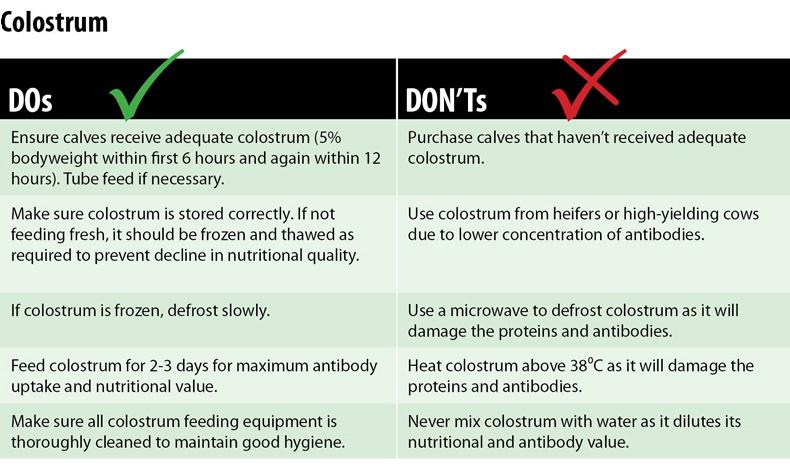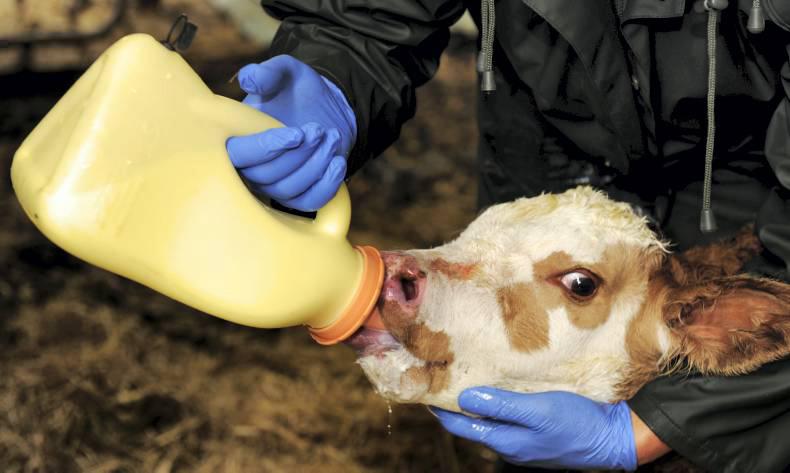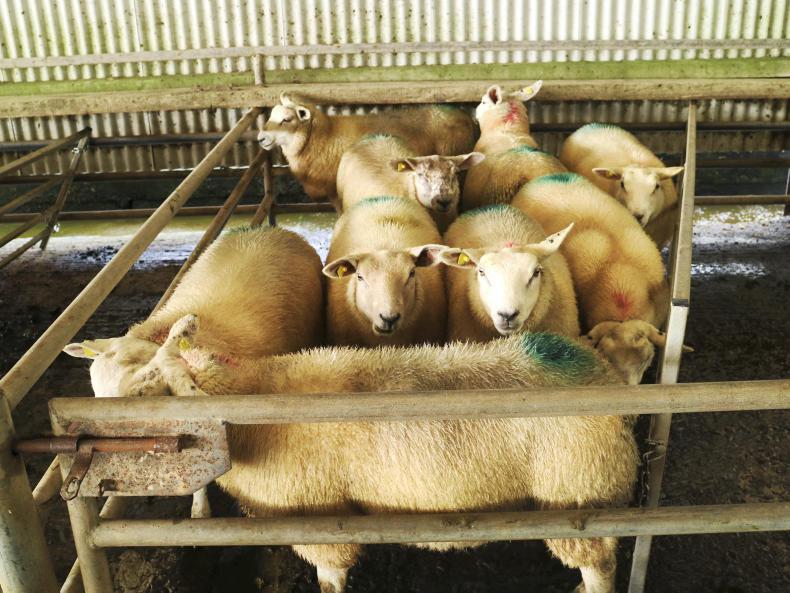On farms where calves are being reared from within the herd, ensuring adequate colostrum intake within the first few hours of life is crucial.
Adequate colostrum intake is critically important for the newborn calf as its own immune system is underdeveloped when it is born.
The calf is reliant on the passive transfer of antibodies and proteins from the cow, through the colostrum, to provide it with protection from disease in the first weeks and months of life.
As a rule of thumb, the calf needs to consume the equivalent of 10% of its body weight in colostrum in the first 24 hours of life. This equates to 5 litres for a 50kg calf.

Ideally at least three litres of this should be consumed in the first six to eight hours, as the capacity to absorb antibodies diminishes after that.
The capacity of the newborn calf to absorb the antibodies is very low after the first 24 hours of life.
Farmers purchasing calves have no control over colostrum intake at birth. However, they can reduce the risk of buying calves that have received inadequate levels by only selecting animals that are over two weeks of age and 50kg liveweight.
This article was first published in the Dairy Calf to Beef booklet published by the Irish Farmers Journal with ABP Ireland, Kepak Group, OSI Food Solutions, and McKey Food Services in France.
Read more
Dairy calf to beef series
On farms where calves are being reared from within the herd, ensuring adequate colostrum intake within the first few hours of life is crucial.
Adequate colostrum intake is critically important for the newborn calf as its own immune system is underdeveloped when it is born.
The calf is reliant on the passive transfer of antibodies and proteins from the cow, through the colostrum, to provide it with protection from disease in the first weeks and months of life.
As a rule of thumb, the calf needs to consume the equivalent of 10% of its body weight in colostrum in the first 24 hours of life. This equates to 5 litres for a 50kg calf.

Ideally at least three litres of this should be consumed in the first six to eight hours, as the capacity to absorb antibodies diminishes after that.
The capacity of the newborn calf to absorb the antibodies is very low after the first 24 hours of life.
Farmers purchasing calves have no control over colostrum intake at birth. However, they can reduce the risk of buying calves that have received inadequate levels by only selecting animals that are over two weeks of age and 50kg liveweight.
This article was first published in the Dairy Calf to Beef booklet published by the Irish Farmers Journal with ABP Ireland, Kepak Group, OSI Food Solutions, and McKey Food Services in France.
Read more
Dairy calf to beef series












SHARING OPTIONS